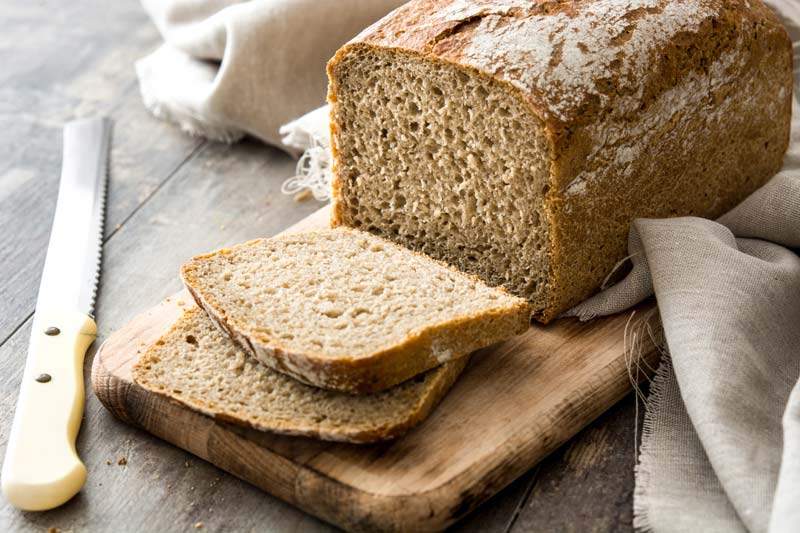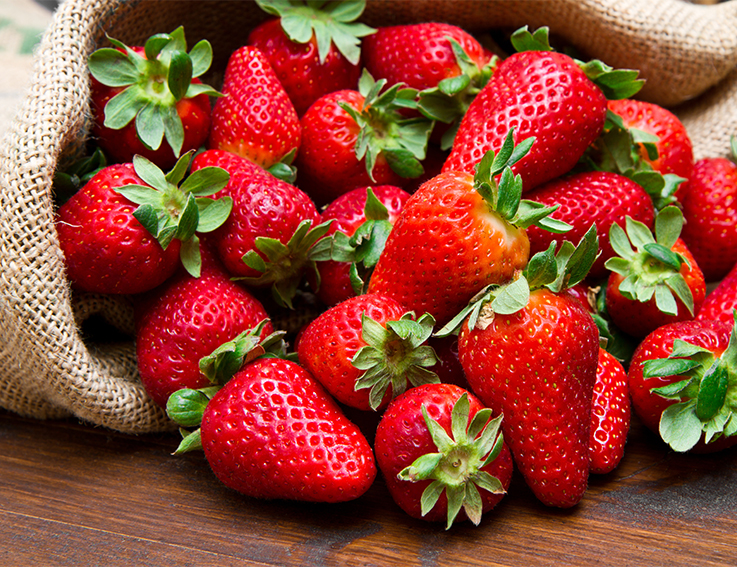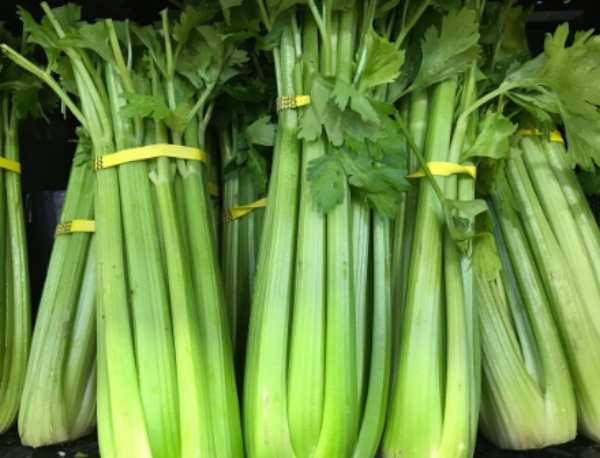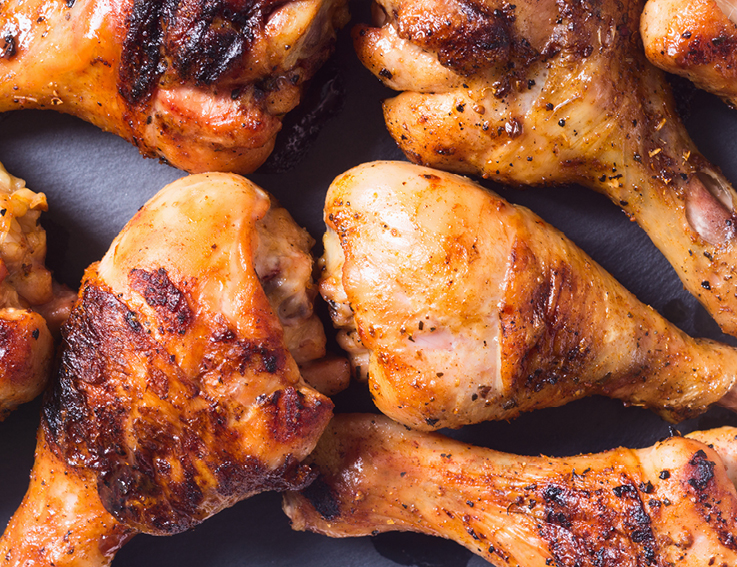We know how frustrating and wasteful it can be to see good food go bad. So, we've put together our top tips to make food last longer.
It's easy to save money on food by cooking and eating healthy on a budget. You can head to the grocery store and pick up a selection of delicious proteins, fibres and produce, ready for you and your family to tuck into them at meal time. But that carefully planned food budget can easily fly straight out the window if you aren't storing your groceries properly and making them last longer.
According to New Zealand's Ministry for the Environment, globally, an estimated one third of all the fresh food we produce is lost or wasted between farm and fork each year. That's a whopping 1.3 billion tonnes of food that is never eaten – and chances are that some of it may have ended up in your rubbish bin.
How to make bread last longer
Taking a bite of fresh bread and realising it's stale is pretty annoying. But it's even worse going to make your morning toast and finding your loaf of bread has turned green and mouldy. Luckily, stale and mouldy bread can be avoided!

Here are some of our top tips to reduce food waste when it comes to bread:
Use dish towels and bread boxes
If you want your bread to last longer, wrap it in a dish towel and then put it in a paper bag – easy!
For a slightly fancier method, you could also purchase a bread box.
Revive stale bread
We know that sometimes the busy-ness life gets the best of us – and that just one too many days sitting on the bench can make a fresh loaf of bread quickly transform into a stale loaf of bread.
But did you know that you can bring stale bread back to life? Simply rubbing the loaf with an ice cube and then baking in the oven for around 12 minutes should make your loaf return to its former soft and tasty state!
Store it in the freezer
Reviving stale bread is great, but even better is avoiding it going stale in the first place. By storing bread in the freezer, you can prolong its shelf life, keeping it fresh for up to three months. This is an excellent option if you don't plan to eat it within a few days to a week or so. If you do decide to store your bread in the freezer, it's best to cut your loaf into slices first. Continuously defrosting and refreezing the bread will negatively impact its flavour and texture, so just defrost each slice as you want to eat it.
If you're considering storing it in the fridge as an "in-between" method, here's a helpful tip: don't. Keeping bread in the fridge will actually make it go stale faster.
How to make fresh fruit last longer
Fresh fruits are notorious for going bad quickly. And we all know that having just one rotten apple in the fruit bowl can make the whole lot go bad. When it comes to fresh fruit, here are some of our best tips for making your fruit last longer and to help avoid food waste.
Don't wash your produce before you put it in the fridge
It's important to wash fresh produce before you eat it. But this doesn't mean you should wash it as soon as you get it home! No produce should be rinsed before it goes in the fridge because it will deteriorate quicker if it's damp. Instead, wait, and wash just before you eat.
Wash berries in white vinegar and water
We know – we just said that you shouldn't wash your fresh produce before putting it in the fridge. This is true for most fruits; however, berries are the one exception.
Wash berries in a mixture of three cups water and one cup vinegar, then rinse and dry them thoroughly. This will kill any bacteria before they hit the fridge and stop them from growing mould prematurely.

Store your fruits and veggies separately
Some fruits, like bananas and apples, emit high levels of ethylene gas. This gas ripens other fruit and vegetables faster, shortening their shelf life and making them spoil faster. By storing fruits and vegetables in their own fridge drawers or separate areas on the countertop, you can minimise this problem. Store them away from direct sunlight where possible.
Inspect fresh produce regularly
A rotten apple, orange or lemon can ruin the whole bunch. Whenever you're in the kitchen, give them a quick check to make sure they're all still looking fresh.
Wrap banana stems in plastic wrap
This stops the release of ethylene that causes ripening. You can also freeze bananas whole or chopped, then use them in smoothies or defrosted to bake into banana bread, muffins or pancakes. Bananas should be kept away from other fruits at room temperature. Most bunches will last up to two weeks.
Keep apples in the fridge
Apples last longer in the fridge – so when you can, store them in a crisper drawer. If you prefer to eat your apples at room temperature, you can shift a few from the fridge to the fruit bowl each day.
Put lemon juice on avocados
Ripe uncut avocados can be stored in the refrigerator for a few days. Once they've been cut, store them in an airtight container and cover them with lemon juice to stop browning. If you've got heaps of avocado on your hands, puree them with lemon juice and freeze to make into guacamole at a later date. Lemon juice is the key to making avocados last longer.
On the other hand, if you want to speed up the ripening process of an avocado, store it with apples, bananas or citrus fruits.
How to make vegetables last longer
Whether it's leafy greens, fresh herbs or potatoes and onions, storing produce correctly can have a real impact on how long you can expect it to last.
Let's look at some of the best storage techniques for fresh vegetables.
Keep ginger in the freezer
The best spot for storing ginger is actually the freezer. This will make the ginger last much longer and also make it easier to grate and peel.
Keep onions in a pair of stockings
This is without a doubt one of the strangest techniques when it comes to storing vegetables, but it's also one of the most effective. Keep onions inside a thin pair of tights with a knot between each, then hang in a cool dry place. This can make them last up to a massive eight months longer.
Store onions in a cool, dark place with low humidity – never in a plastic bag or airtight container. Garlic and onions will both last longer in a well-ventilated environment.
Store asparagus like a bouquet of flowers
Your asparagus may not look as beautiful as fresh flowers but trimming the ends and putting them in a jar (or a vase) with some water can prolong its life. Loosely wrap a plastic bag over the top before popping it in the fridge.
Air dry herbs
Once you get home from the grocery store, allow your fresh herbs to dry then spread them out on dry paper towels and roll them up. Place them back in the bag and then refrigerate. Alternatively, you can treat herbs like flowers and place them in water to prevent wilting.
Freeze fresh herbs in an ice cube tray
When you notice your fresh herbs starting to approach their end of life, try freezing them in an ice cube tray along with some olive oil. Once you need them, just melt the cube and they're ready for use – a handy meal prep idea!
Keep your lettuce dry
Wondering how to make salad last longer? If you can keep your lettuce free from moisture, you can also boost its shelf life. Too much water will make your greens wilt, so place a paper towel in the container with your lettuce. The paper creates a sponge-like effect to soak up any excess moisture. Once any paper towels become soggy, switch the damp paper towel for a dry one.
Try to make sure your greens have a chance to dry completely before putting them in the fridge – using a salad spinner can be an excellent way to assist the drying process. If you have your leafy produce in plastic bags, make sure you poke small holes in the green bags to promote greater air circulation.
Wrap foil around vegetables in the refrigerator
If you wrap celery and broccoli in foil when stored in the fridge, they can last up to a month longer.

Line shelves and crisper drawers
If you know you're guilty of letting vegetables go bad at the back of the crisper drawer, investing in some shelf liners might be worthwhile. These products work by drawing out the moisture and encouraging more air – making your products last longer.
Keep tomatoes in a bowl
Tomatoes lose their flavour when kept in the fridge so they should be kept in a bowl where possible. However, they are particularly sensitive to ethylene so they should also be kept separate from your other fruit. If tomatoes get too ripe for salads and sandwiches, try roasting them. You could even blitz the roasted tomatoes to make a delicious pasta sauce that can then be frozen for a simple and quick dinner.
Store apples and potatoes together
Even though we said to keep apples away from other fruits and vegetables, there is an exception to the rule. Apples and potatoes will actually prevent the potatoes from sprouting and keep them firm for months.
Potatoes and kūmara should be stored in a cool, dark place with relatively high humidity.
Cut the tops off your carrots
This also goes for beets! The leaves of root vegetables steal their nutrients even after they've been picked. Chopping off the roots will make them last longer. Store root vegetables in the fridge to prevent food waste.
Keep mushrooms in paper, not plastic
Mushrooms kept in plastic packaging will turn slimy quite quickly. They'll last much longer in paper bags.
Store broccoli, cabbage and cauliflower in plastic bags or airtight containers
Refrigerating these cruciferous veggies and keeping them in sealed containers can prolong their shelf lives. Keeping them sealed is especially important once they've been cut. Wrap broccoli and cauliflower in a resealable bag or tin foil if you don't have the shelf space for a container - this will make them stay fresh for longer.
Compost what doesn't survive the test of time
We understand that despite the best of intentions, some fruits and veggies will inevitably become spoiled food in the back of your fridge. To help the environment, consider composting. Your garden, and the earth, will thank you!
How to make meat last longer
Fresh meat is highly perishable and can be quite expensive – so it can be heart-breaking to have to throw out a costly cut of meat once it's past its use by date.

Here are our best meat tips to make your food last longer:
Store your meat in the freezer
If you know you won't be eating your meat within the next week or so, consider moving it to the freezer then defrosting once you're ready to cook. Make sure it's stored in an airtight resealable plastic bag or container to avoid freezer burn. Many types of meat will last up to eight months stored in the freezer.
Keep meat in the coldest part of your fridge
Meat should be stored on the middle shelf or bottom shelf of your fridge and kept as cold as possible to prolong its life.
Decide what meat you need in advance
Going to the supermarket with a plan can help prevent wasted meat and money. Not sure what you need? Check out our guide on what to look for when buying meat.
How to make dairy products last longer
Don't store milk in the fridge door
Keep highly perishable items like milk on the middle or bottom shelf and near the back. Never keep it in the fridge door where temperatures can easily fluctuate. You can also help it last longer by using a glass bottle rather than leaving it in the carton. Milk is one of the most perishable foods, so it should be put in the fridge immediately after grocery shopping, and the best before date should be carefully monitored.
Keep the end of your cheese fresh
Unless you have a special cheesecloth or cheese paper, keep your cheese fresh by lightly dampening a paper towel with vinegar and storing it in the fridge in an unsealed plastic bag. This small amount of vinegar shouldn't change the taste of your cheese. Alternatively, if you'd rather not use a plastic bag, you can wrap cheese in parchment paper, wax paper or a paper bag so it can still breathe.
More money saving tips
Top tips for making food last longer
Best before dates are just a guideline. It's a common misconception that you can't eat food after the best before date has passed. In reality, this date is just a recommendation. With the exception of eggs, a best before date just tells you how long the product will be in the best condition. In many cases, it will taste absolutely fine after that anyway. In most cases, it's best to use some common sense to see if it's edible. Just make sure it passes the smell and visual test first!
Use by dates are different to best before dates. It's worthwhile being a bit more careful with a use before date – these are usually more about food safety to give you an idea of when food could become potentially dangerous to eat. With dairy products, meat and seafood, it's always better to be on the safe side—exercise caution.
Cook or freeze meat and vegetables if they're on the way out. You can then store it for longer in the fridge or the freezer – very useful if you're a budget meal planner.
To check if an egg is still good and able to be used, put it in water. If the egg sinks, it’s still fresh – especially if it lays flat on its side. If it sinks but stands on one end at the bottom, it’s not as fresh but still edible. If the egg floats to the top, it shouldn’t be eaten.
Don't overfill your fridge. It's much easier if you can see all of the available food and rotate older food to the front as necessary. A too-full fridge can easily become a wasteland for forgotten food. Overfilling a fridge can also prevent it from effectively cooling, block air circulation, and become a food safety hazard.
If you know you're a chronic food waster, check out our guide on Foods that last the longest and consider changing your buying habits. There are some excellent food substitutes to help you save money and avoid food poisoning!
